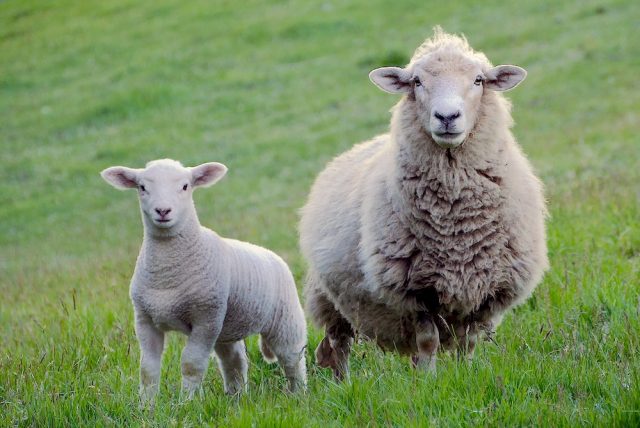Lamb could be ‘a solution not a problem’ in tackling climate change
25th September 2019
The National Sheep Association (NSA) has hit back at claims that vegan diets and alternative ways of managing land are the answer to global warming.
British lamb produced from grass-based systems could be a solution rather than a problem in tackling climate change, sheep farmers have said.
The National Sheep Association (NSA) has hit back at claims that vegan diets and alternative ways of managing land are the answer to global warming.
NSA Chief executive Phil Stocker said: “Sheep, by their very existence, are excellent for the planet and are part of a circular recycling of natural elements. Their reliance on fossil fuels is minimal compared to processed foods based on soya, almonds or palm oil – and we all know that Britain’s grasslands are highly appreciated for their association with our native wildlife, whether it’s birds mammals or insects.”
Opinions cited in the press that vegan diets are the best way to protect the environment are based on global statistics from sheep and beef farms – including intensive units that house tens of thousands of animals, Mr Stocker added.
“UK sheep farms have sheep spread across the countryside – often in areas that simply not suitable for other types of farming – and are used in other systems to help naturally rejuvenate the soil for arable crops.”
Criticisms over methane emissions are also misleading, he said, but acknowledged that methane should not be ignored.
“It is an emitted gas that has an impact on global warming. However, we now know that it doesn’t behave in the same way as the other major warming gases and the calculations should take this into account. Methane has a short, rotational life cycle that means, providing livestock numbers remain stable, methane levels wont build and build.
“We are also finding that Nitrous Oxide emissions from grassland are far lower than was previously assumed and it only needs a small application of common sense to conclude that the main problems are caused by fossil fuels – the lower the reliance on fossil fuels the lower the impact on global warming.”
Mr Stocker warned that the focus on reducing red meat intake could be taking attention away from other more beneficial methods that could impact climate change.
The statement comes amid growing concerns about the impact that a no deal Brexit could have on the sheep industry. Experts predict it is likely to lead to the slaughter of millions of sheep that would be unsellable on the market, while tariffs could price many farmers out of business. Around 35 per cent of UK sheep meat is currently exported, of which around 96 per cent goes to the EU – equating to 4.5 million sheep a year.
Farming organisations have urged the government to ensure farmers have unfettered access to the EU, and warned that a no deal Brexit could be a ‘disaster’ for the industry.

